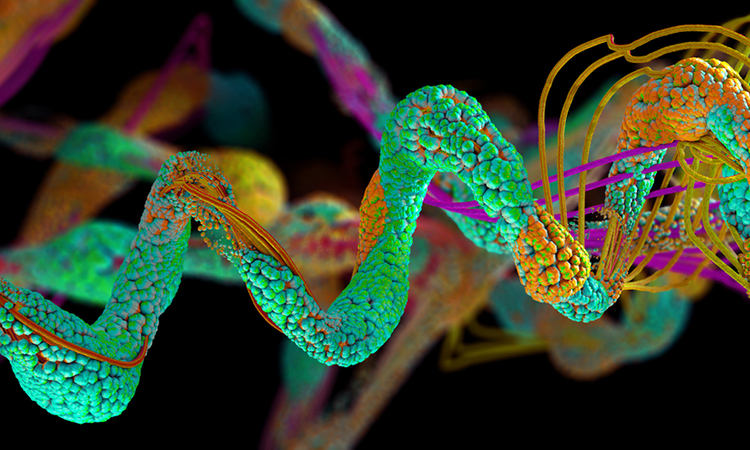Peptides with anticancer potential discovered in new study
Posted: 15 November 2022 | Victoria Rees (Drug Target Review) | No comments yet
Researchers have found peptides that bind to chains of ubiquitin proteins in cancer cells, suggesting they could be used as a therapeutic strategy.


In a new study, researchers from the Technion – Israel Institute of Technology have discovered unique peptides with anticancer potential. The cyclic peptides the researchers discovered, as outlined in Nature Communications, bind specifically to chains of ubiquitin proteins – proteins that are usually used as a “death tag” for damaged proteins. The labelling of the damaged proteins leads to their being broken down in the proteasome.
Technion researchers previously developed an approach to influencing the ubiquitin mechanisms. Instead of interfering with the activity of enzymes that affect these mechanisms, they decided to try to directly intervene in the ubiquitin chain itself.
Based on this approach, the researchers in the previous work developed cyclic peptides that bind the K48-linked ubiquitin chains, preventing it from leading to the breakdown of the damaged proteins. This disruption gradually leads to programmed death of cells. In the same study, they proved that when such an event formed in a malignant tumour, it kills the cancer cells, potentially protecting the patient.
In the current study, cyclic peptides that bind the chains linked to position 63 in ubiquitin and that are involved in repairing damaged DNA were discovered. The researchers found that when attached to these ubiquitin chains, such peptides disrupt the aforementioned repair mechanism. This leads to the accumulation of damaged DNA and to cell death. Here too, when this binding occurs in cancer cells, it destroys these cells. The researchers believe this therapeutic strategy could be more effective than existing anticancer drugs, against which patients gradually develop a resistance.
Related topics
Drug Discovery, Molecular Targets, Peptide Therapeutics, Ubiquitin-proteasome system
Related conditions
Cancer
Related organisations
Technion-Israel Institute of Technology








